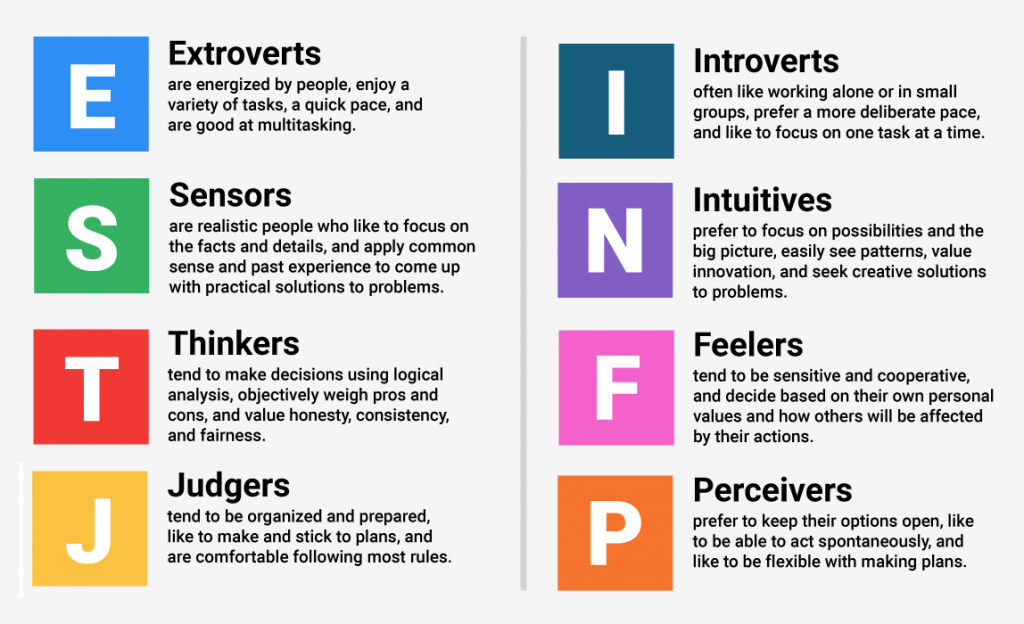MBTI Assessment
The Myers-Briggs instrument:
Myers-Briggs is an adaptation of the theory of psychological types produced by Carl Gustav Jung. It is based on 16 personality types, which Jung viewed as stereotypes. They act as useful reference points to understand individual unique personality traits. At the heart of Myers Briggs theory are four preferences that delineate how a person prefers to deal with issues:
- Ways of directing and engaging in interpersonal relations: (Extraversion or "E"), (Introversion or "I").
- Ways of taking in information: Facts and reality (Sensing or "S"), or possibilities and potential (Intuition or "N").
- Methods of decision making and coming to conclusion: Logic and truth (Thinking or "T"), or values and relationships (Feeling or "F").
- Ways of approaching the outside world: A lifestyle that is well-structured (Judgment or "J"), or one that goes with the flow (Perception or "P").
To learn more about the personality of individual staff members or teams, especially for persons in leadership positions, a subject will complete a structured personality questionnaire that will result in showing the subject’s unique personality traits in relation to their personal and professional styles. Importantly, the Myers Briggs helps match a subject’s personality and aptitude with promotions, career path, training, and leadership positions based on the analysis of the test.
MBTI has 13 reports identifying a variety of competencies
This instrument will help to identify personality type, a person’s suitability for current position and future development plan, leadership, and decision-making competency. Leaders will understand themselves better and will get knowledge how manage their team as per personality type.
MBTI helps us understand our own personality type so we can embark on self-development. It helps us view the world with more clarity, thus fostering greater self-awareness and self-acceptance. The MBTI assessment will lead you to:
- Become more self-aware
- Create a personal development plan
- Avoid and resolve conflicts
- Improve communication skills
- Increase emotional intelligence
- Cultivate a targeted career development plan
- Create and maintain cohesive relationships
- Promote your unique strengths
- Inform your own and others decision making
- Identify and develop strengths and weaknesses
- Identify gaps in the team
- Discover how your team style works best with customers
- Enable self-understanding and so reduce stress
- Assist communication strategies
- Provide managers with the understanding to give effective feedback
- Work together more effectively
- Appreciate Difference
- Relate to each other with greater understanding
- Encourage true psychological diversity
- Support people through life transitions
- Develop thinking skills
- Develop emotional intelligence
- Develop leaders, managers, teams and HR expertise
- Encourage team members to understand and appreciate different strengths
- Improve and change culture.
- Improved relationship with your Boss
- Improved relationship with your staff
- Stronger Customer Insight

